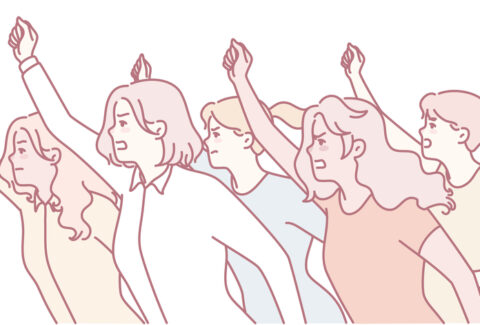From Silence to Speech: Reclaiming the Power of Voice
Introduction: The Silencing Within
Internalized oppression often thrives in silence. The very systems that marginalize people teach them, sometimes overtly, often subtly, that their voices are less valuable, less credible, or even dangerous. Over time, this silencing does not need external enforcement; it becomes self-regulated. Individuals censor themselves before others have the chance to do so. The tragedy is not just the muting of personal voice, but the dimming of collective power.
The Psychology of Silencing
Psychological research shows that voice is central to agency. Albert Bandura’s theory of self-efficacy emphasizes that believing in one’s ability to influence outcomes is fundamental to resilience and motivation (Bandura, 1997). Internalized oppression undermines this by embedding doubt and fear into self-perception.
Sociologist Paulo Freire (1970) argued that oppression maintains itself by keeping the oppressed from naming their reality. Without naming, there can be no transformation. Silence, then, is not neutral; rather, it is a tool of oppression. When individuals reclaim their voice, they not only heal themselves but also disrupt the systemic cycles of marginalization.
The Cost of Silence
Silence carries deep psychological, relational, and societal costs:
- Psychological: Studies on minority stress demonstrate that suppression of self-expression is linked to depression, anxiety, and poorer health outcomes (Meyer, 2003).
- Relational: Suppressed voices lead to fractured communication in families, workplaces, and communities, perpetuating misunderstanding and disconnection.
- Societal: When silenced individuals remain unheard, systemic injustices go unchallenged, and cycles of oppression persist unbroken.
Reclaiming the Power of Voice
Healing begins when silence is broken:
- Free Association and Writing: Journaling or therapeutic writing can reveal internalized scripts and challenge the “inner oppressor.”
- Community Dialogue: Safe spaces where marginalized individuals share stories create resonance and collective empowerment.
- Micro-Courage: Small acts of voice—asking a question in a meeting, speaking one’s name with pride, can snowball into greater confidence.
- Reframing Fear: Fear of speaking out is often the conditioned self-protection of internalized oppression. By reframing fear as a sign of importance, individuals can lean into courage rather than retreat.
Case Example
A Black woman in a corporate setting described how she hesitated to correct colleagues mispronouncing her name. “I thought, don’t make waves, don’t be difficult.” Over time, this small silence eroded her sense of dignity. Through reflective practice and support, she began to assert her name with pride. “It’s not just my name; rather, it’s my story, my heritage; and every time I say it, I reclaim myself.”
Call to Action
Every act of voice is a step toward liberation. Speaking, writing, singing, teaching, protesting—all reclaim spaces that silence once occupied. Reclaiming voice is not simply personal healing; rather, it is collective resistance.
⸻
References
- Bandura, A. (1997). Self-efficacy: The exercise of control. W.H. Freeman.
- Freire, P. (1970). Pedagogy of the oppressed. Continuum.
- Meyer, I. H. (2003). Prejudice, social stress, and mental health in lesbian, gay, and bisexual populations: Conceptual issues and research evidence. Psychological Bulletin, 129(5), 674–697.







